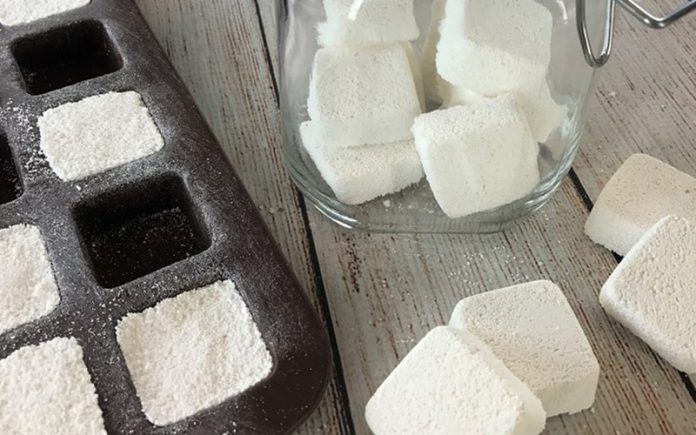Because of my career in architecture, I rarely get the time to do my household chores. But when I do, one of the things that really seems hectic to me is keeping the dishes squeaky clean. Although my top-class dishwasher does the washing very well, I am particularly concerned about the detergent I use to wash the dishes. I actually love making my own dishwasher detergent and you can do that too! All you need are household ingredients and some tips that I’m about to share with you to prepare your own homemade dish soap. Believe me, this will be of great help, especially when you run out of your store-bought detergents.
Why Make Your Own Homemade Dish Soap?
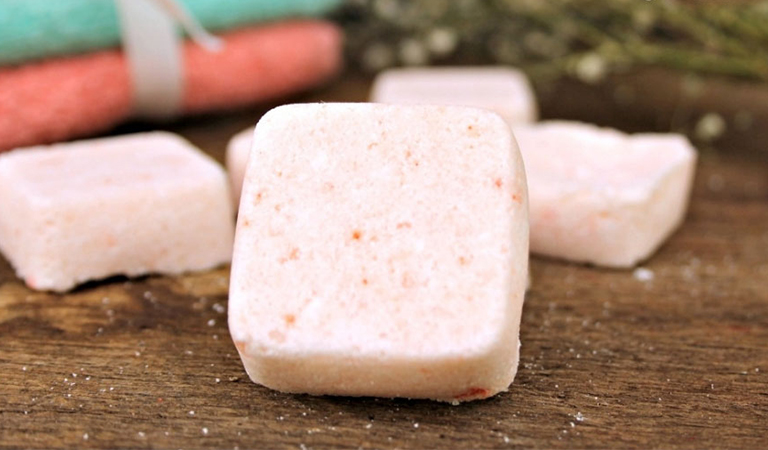
But why should one make a dishwasher detergent substitute right at home? The ingredients used are completely safe to use, non-toxic and are found in almost every household. So, you won’t have to buy anything separately, which is an added bonus. This will make your homemade dish soap affordable. The ingredients are environmentally non-hazardous as well. They’re also super easy to make, as you’ll see next.
What Not to Use While Making Homemade Dishwasher Soap
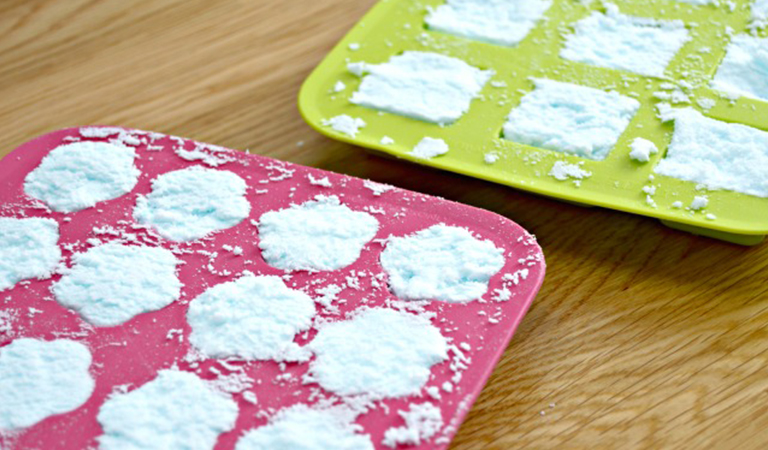
I had to go through many trial and errors to find the most effective combinations. Some ingredients are known for cleaning but are not appropriate for dishwashing, while others may cause damage to your skin or not help in effective cleaning. Here are some ingredients you should never use while making a homemade dishwasher detergent.
Borax: It’s found naturally, but it’s also toxic, as it can cause respiratory problems, and has been banned by the FDA for its use as food additives. This is exactly why you should not use borax in dishwashing liquids.
Essential Oils: They may sound like eco-friendly ingredients that are great for cleaning purposes, but they don’t help much when it comes to cleaning dishes. Although essential oils have antimicrobial properties, they’re not used for various reasons. First, they’re not soluble in water, so the mixture isn’t exactly easy to use. Also, essential oils may damage the quality of certain plastics, metals or rubber materials. Essential oils are typically used for topical applications and it’s better to let them just stick to that.
Moisturizing Oils: Again, moisturizing oils are oily, so adding them to a detergent mixture just ruins the whole function of cleaning out grease and dirt. If you’re not using a dishwasher but your hands instead, wash the dishes and then apply moisturizing oils to your hands. This way, your hands would feel softer.
What You Should Use to Make Dishwasher Soap
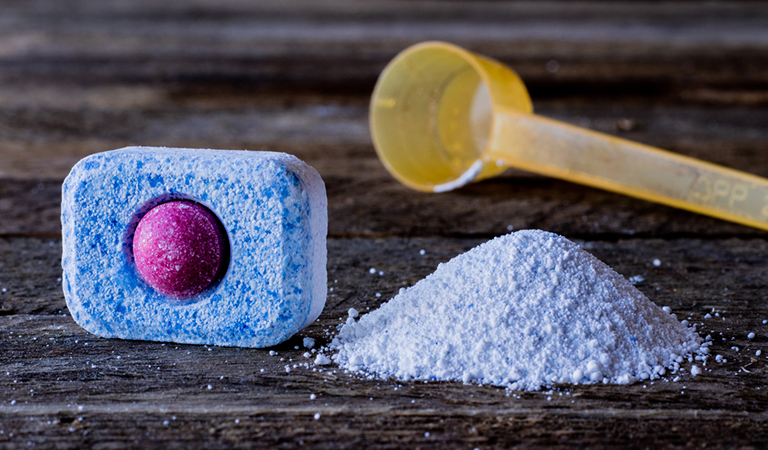
Your DIY dishwasher detergent requires the right pH level, consistency, and a little vinegar. I believe vinegar is magical. With a lower pH level and antimicrobial activity, they can be really effective cleaners. So, if you don’t have any alkaline ingredient around, going acidic is your best bet.
Most commercial dishwasher soap contains alkali with a pH level slightly more than 7, which can neutralize food residues and components that are acidic. There are some ingredients that can’t be mixed together. So, if you’re using Castile soap, for example, you can’t use vinegar because it’s alkaline. A soap with a neutral pH won’t do any good. Thus, when you don’t have alkali around, only then you should use vinegar. An even better idea is to use vinegar to rinse the soap off at the end. This way, mineral deposits, and tough water spots will also be easily removed.
What could possibly be better than vinegar? It’s got to be baking soda. It’s also known as sodium bicarbonate and a mild form of base with a slightly higher pH level than 7. It can remove odors and break down food stains and debris easily. Baking soda is also non-toxic and safe for use. A few tablespoons in the detergent recipe would definitely do wonders for your dishes.
Glycerin derived from vegetable oils is formed as a by-product during soap manufacturing. It can break down proteins and oil stains.
How to Make Homemade Dish Soap with Castile Soap
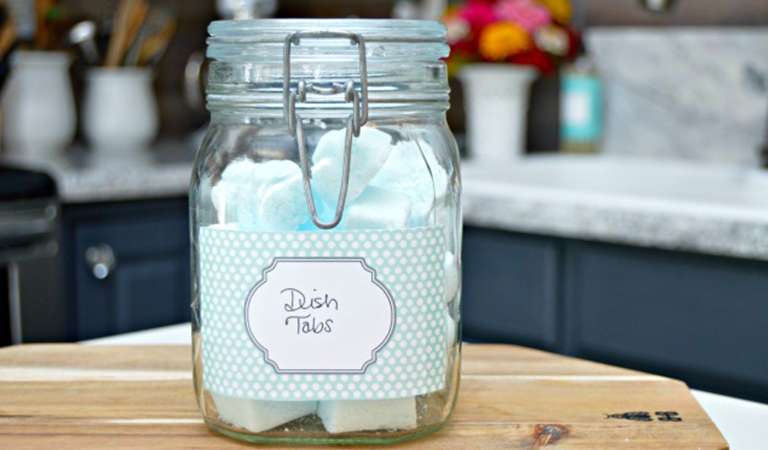
For those of you who don’t know what castile soap is, here’s a small intro. Castile is a place in Spain, where this soap originated. It’s olive oil or laurel oil based hard soap that can also be used for laundry purposes and even showering. It has a pH level of around 9. With an appropriate composition, your dishes will become clean and shiny without a spot.
But be careful. You need to use the right amount of castile soap because, otherwise, you would end up getting cloudy marks on plastics and glass which are hard to remove and make them appear dull. Use vinegar at the end in case that happens. Here is a small recipe that you can use to create a dishwashing liquid out of castile soap. The ingredients include:
- 1 cup of liquid castile soap
- 0.5 tablespoon of vegetable glycerin
- 1 cup of water
- ⅓ cup of washing soda
Directions: Now the hard part comes. Boil the water and then add washing soda. Stir until the soda completely mixes into the water, then allow the mixture to cool down. Then, at room temperature, add castile soap liquid and glycerin. Pour the mixture into a bottle. For one large sink containing water, 2 tablespoons of this liquid are enough. Once the dishwasher is done washing you could rinse off the dishes with 1 cup of vinegar as a finishing touch.
How to Make Homemade Dish Soap with Lemons
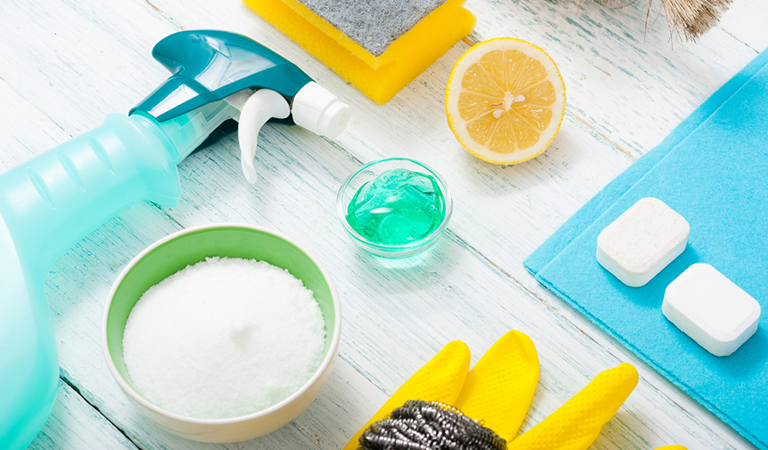
Don’t you sometimes wonder why lemons are often used in dishwasher detergents? Well, it’s not the actual lemon that does the trick, it’s what it contains. Before getting to that point, here’s how you can make your own dishwasher detergent using:
- 2 regular lemons (make sure the seeds and skin are removed)
- 3.5 cups of water
- 1 cup of kosher salt
- 4 ounces of white vinegar
Directions: Heat 1.5 cup of water using your saucepan and put those lemons inside. Bring the water to a boil and allow 20 minutes of simmering. The lemons would become really soft at this point and if more water needs to be added, do that. Now take a blender, pour this mixture (including the lemons) and add 2 more cups of water. Blend until the mixture becomes really smooth. Extract liquid from the lemon mixture back into that saucepan, leaving the pulp and rind behind. Now add vinegar and kosher salt and stir till it mixes well. Let the mixture boil and cook for up to 15 minutes so it thickens a bit. Allow it to cool down and store in a container, preferably made of glass. Use 3 tablespoons of this mixture when using your dishwasher to wash the dishes.
The citric acid in lemons helps degrade mineral deposits, while other components in lemon have antimicrobial properties which could help disinfect the dishes. The citric acid in lemons and the additional pinch of vinegar works to remove grease. The salt helps to scour dirt away.
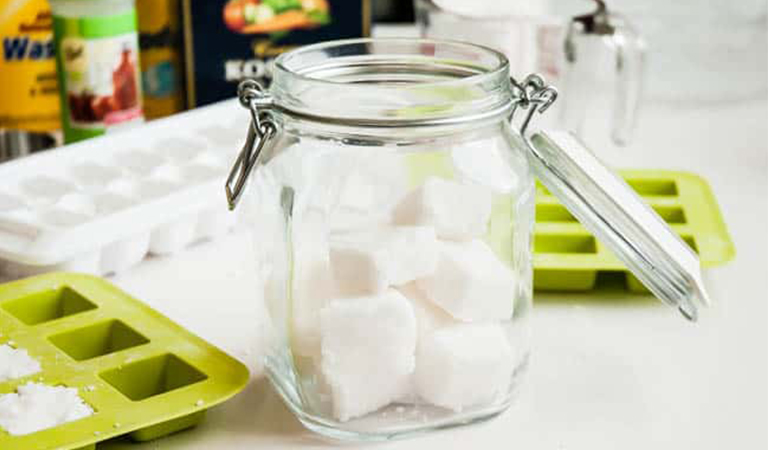
It does look like a lot of work, but making your own dishwasher detergent is actually very cost-effective in the long run if you think about it. The ingredients are readily available and cheap, and if you make and store the liquid in large amounts, it will last for a long time. Also, your dishes would look good and smell nice after every wash. So, rather than going and buying a dishwasher detergent, just making your own all by yourself would save you a lot of bucks and do the job of washing and cleaning even better! So hurry up and start making your very own dishwasher detergent soap!


